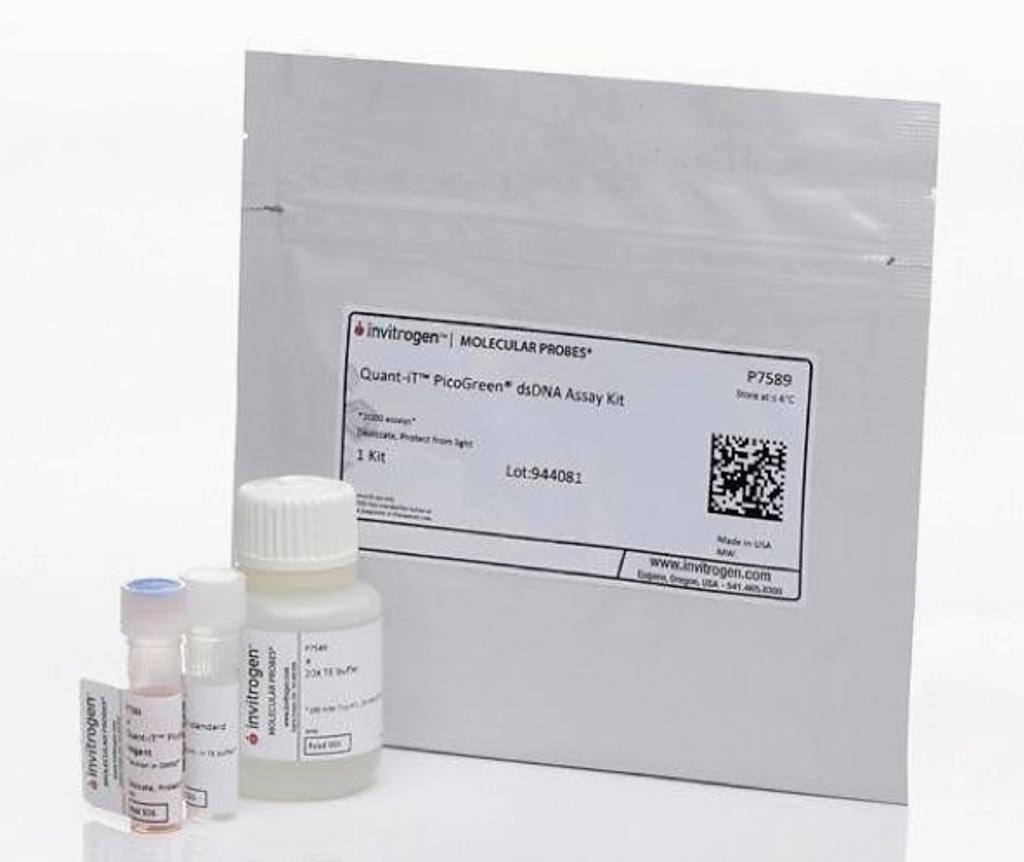Biomarker Found for Prostate Cancer Treatment Response
By LabMedica International staff writers
Posted on 27 Nov 2018
Prostate cancer is one of the most common cancers in males and has one of the highest five-year survival rate when diagnosed in the localized stage. When diagnosed in the advanced stage or when a localized tumor relapses after the initial local treatment, the usual procedure is to fight it using male hormone (androgen) deprivation therapy.Posted on 27 Nov 2018
Treatment can be done either by surgical removal of the testicles or using medication that eliminates the testosterone production (chemical castration). However, many of the patients, up to 90%, after the initial castration develop more aggressive, castration-resistant forms and their survival rate is around two years. This most aggressive type of prostate cancer can be treated with two different therapies: taxanes or hormone treatment.

Image: The Quant-iT high sensitivity PicoGreen double-stranded DNA Assay Kit (Photo courtesy of Invitrogen).
An international team of scientists led by the Istituto Scientifico Romagnolo per lo Studio e la Cura dei Tumori (IRST) IRCCS (Meldola, Italy) selected the 115 patients treated with docetaxel as first-line therapy and in an exploratory analysis compared them with 73 previously described patients treated with first-line abiraterone/enzalutamide. A comparison of clinicopathological characteristics between patients receiving either docetaxel or abiraterone/enzalutamide as first-line therapy showed significant differences in age, site of metastases.
The team measured prostate-specific antigen (PSA), lactate dehydrogenase (LDH), hemoglobin, alkaline phosphatase, and plasma androgen receptor (AR) status. Circulating DNA was extracted from plasma with the QIAamp Circulating Nucleic Acid Kit and quantified with the Quant-iT high sensitivity PicoGreen double-stranded DNA Assay Kit or by NanoDrop ND-1000 spectrophotometric evaluation.
The scientists determined that castration-resistant prostate cancer patients having a normal number of copies of the gene encoding the androgen receptor (AR), the one regulating cellular signals mediated by male sex hormones, in the circulating tumor DNA, seem to have a lower risk of disease progression and a higher life expectancy when they are treated with abiraterone/enzalutamide, with a 50% higher survival rate compared to docetaxel, where the average life expectancy was around 24 months. On the other hand, the patients with more copies of the androgen receptor gene respond slightly better to docetaxel, with a higher life expectancy, around nine months, compared to abiraterone/enzalutamide.
The authors concluded that their findings suggest that AR gain detected in plasma is associated with resistance to abiraterone/enzalutamide but not with taxanes when used in the first-line setting. In conclusion, prospective randomized trials are warranted to validate the utility of plasma AR status for treatment selection in metastatic castration-resistant prostate cancer patients. The study was published on October 26, 2018, in the journal European Urology.
Related Links:
Istituto Scientifico Romagnolo per lo Studio e la Cura dei Tumori














